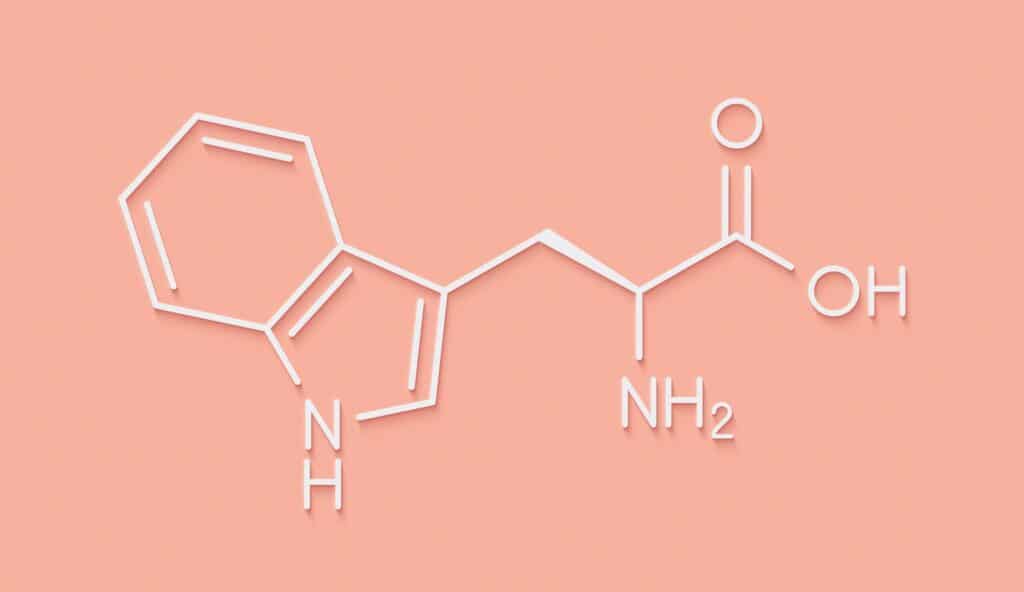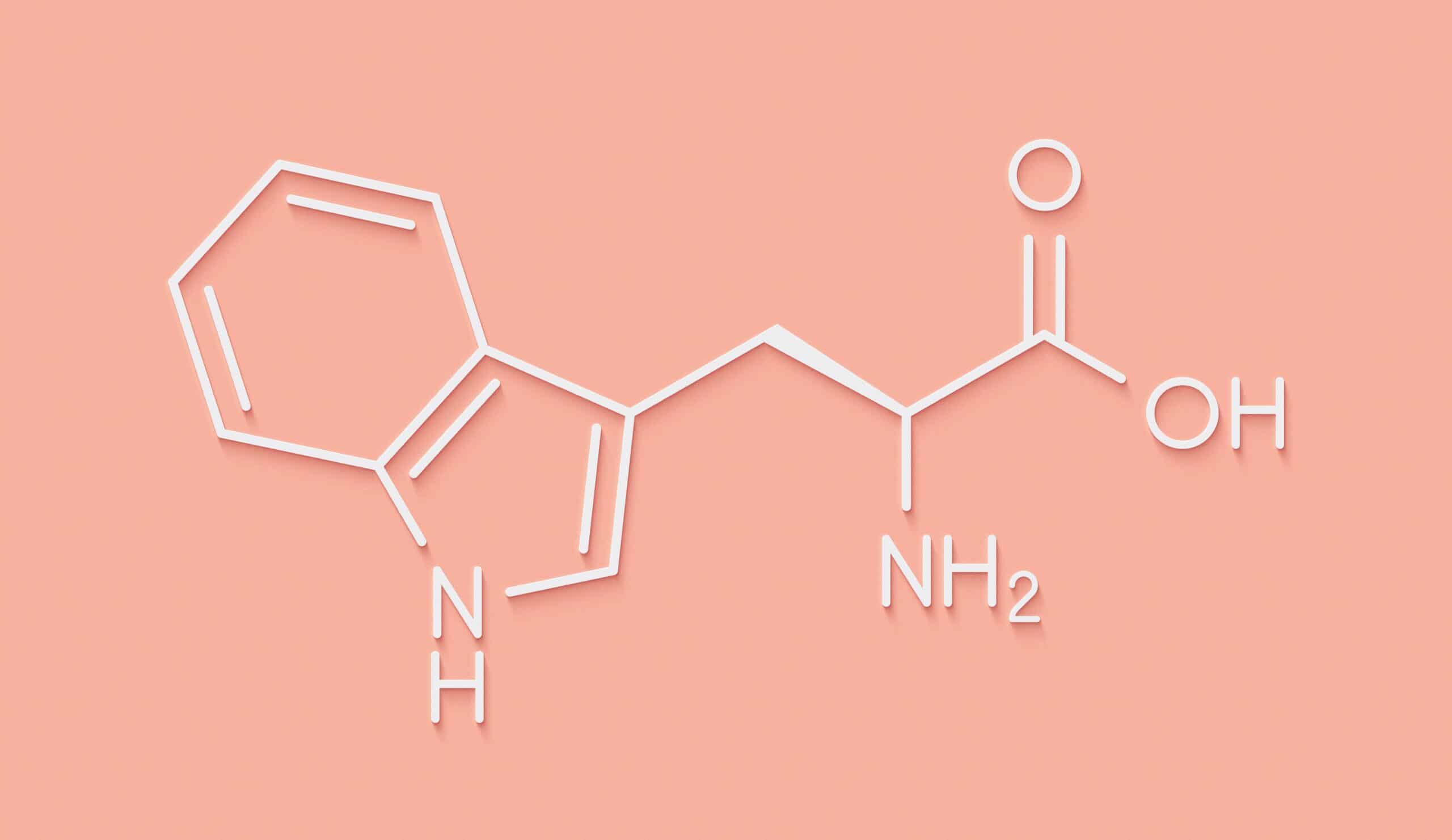Blog

Serotonin and Eating Disorder Recovery: Can it Help?
While the exact cause of eating disorders is still unclear, current research shows that there is a strong association between eating disorders and hormonal activity in the body. A particular area of interest in the scientific community at the moment is the role of serotonin in the development and treatment of eating disorders.
Continue reading to find out what the current evidence says about supplementing serotonin for eating disorder recovery.
The role of serotonin in eating disorders
Serotonin is a hormone and neurotransmitter that regulates appetite, digestion, mood and sleep. It is synthesised by the body from the essential amino acid tryptophan, which is found in protein-rich food sources (such as meat, eggs, dairy, nuts and seeds).
Changes in serotonin levels can contribute to many eating disorder characteristics, including perfectionism, lack of impulse control and issues with mood regulation. Different eating disorder behaviours seem to affect serotonin levels in different ways, although the exact mechanisms are still unclear.
People with binge eating disorder appear to have chronically low serotonin levels – however, it is unclear whether this is a cause or a result of the disorder.1 As serotonin influences mood and impulse control, it is possible that these low levels can facilitate a binge eating episode.
Studies have found significantly lower levels of serotonin in the cerebrospinal fluid of people with anorexia nervosa compared to those without an eating disorder.2 This is thought to be the result of starvation, as dieting has been shown to reduce the production of serotonin – presumably because tryptophan comes from food sources.3,4
A decrease in serotonin from the restriction of food can occur even after a short-term fast – for example, overnight. People with bulimia nervosa appear to experience a greater drop in serotonin in this situation than people without an eating disorder, which can lead to a binge eating episode.5
Interestingly, women are more drastically affected by this fast-induced serotonin reduction than men, and it is hypothesised that this could be a contributing factor to the disproportionate number of women affected by eating disorders.3
Over time, the body adapts to these lower levels of serotonin by increasing the number of available serotonin receptors.6 In simple terms, this means that the brain modifies itself in order to use the circulating serotonin more effectively. How clever?!
Although this may sound like a positive, it can make eating disorder recovery extremely difficult. Just as too little serotonin can have significant negative effects on mood, so can too much. Because of the adaptation described, when the person with the eating disorder breaks their fast, it causes serotonin to spike, and extreme anxiety and emotional distress can be experienced.
With all of this in mind, it begs the question: can serotonin be supplemented as part of eating disorder treatment?
Types of serotonin supplements
Serotonin cannot be supplemented directly as it is unable to cross the blood-brain barrier – this means that if it were consumed in a capsule or injected into the bloodstream, it would be unable to enter the brain, rendering it useless.
Consequently, tryptophan is often touted as an alternative method of serotonin supplementation. However, it has multiple uses in the body other than serotonin synthesis and may be diverted to other purposes than the one intended, such as the production of melatonin, protein and niacin. There are also some unanswered questions as to what dose of concentrated tryptophan is safe.
As a result, 5-HTP is the most popular option for supplementing serotonin. Also known as 5-hydroxytryptophan or oxitriptan, 5-HTP is an amino acid that is synthesised from tryptophan by the body and converted into serotonin.
While there are many assurances of its effectiveness for eating disorder recovery by manufacturers and sellers of 5-HTP supplements, they seem to be mostly unfounded as research in this area is limited.
A small study from 1995 found that patients with bulimia nervosa absorbed less 5-HTP from the blood into the brain than those without an eating disorder, and consequently produced less serotonin.7 The cause of this was not entirely clear but it does highlight efficacy concerns with the use of a 5-HTP supplement for this purpose.
Another study investigated the effect of 5-HTP supplementation in 12 people experiencing binge eating. The researchers found no significant difference in the frequency of binge eating episodes after eight weeks of supplementation.8
A 2012 study of 20 women found that the supplementation of 5-HTP increased feelings of fullness and satiety after eating.9 This suggests that 5-HTP supplementation may actually be counterintuitive for people with restrictive eating disorders, as early satiety often acts as an obstacle to recovery.
In all, there have not yet been any large-scale studies prove that 5-HTP can successfully treat any medical condition, including eating disorders.
If you do plan on taking any kind of supplement, it is important to speak to your health care provider first. The potentially deadly interaction between 5-HTP supplements and antidepressant medications (due to an oversupply of serotonin in the brain) is just one example of why you should always tread with caution!
At Embody Health London, we base all of our recommendations on high-quality evidence – unfortunately, this simply doesn’t exist in the case of serotonin supplementation for eating disorder recovery.
If you are struggling with your eating or body image, we’re here to support you! Reach out to us at [email protected] for a free enquiry call.
Karli Battaglia MDiet, APD
EHL Team x
References
- Haedt-Matt A, Keel P. Revisiting the affect regulation model of binge eating: A meta-analysis of studies using ecological momentary assessment. Psychological Bulletin. 2011;137(4):660-681.
- Kaye W. Altered Serotonin Activity in Anorexia Nervosa After Long-term Weight Restoration. Archives of General Psychiatry. 1991;48(6):556.
- Goodwin G, Fraser S, Stump K, Fairburn C, Elliott J, Cowen P. Dieting and weight loss in volunteers increases the number of α2-adrenoceptors and 5-HT receptors on blood platelets without effect on [3H]imipramine binding. Journal of Affective Disorders. 1987;12(3):267-274.
- Cowen P, Clifford E, Walsh A, Williams C, Fairburn C. Moderate dieting causes 5-HT 2C receptor supersensitivity. Psychological Medicine. 1996;26(6):1155-1159.
- Kaye W, Frank G, Meltzer C, Price J, McConaha C, Crossan P et al. Altered Serotonin 2A Receptor Activity in Women Who Have Recovered From Bulimia Nervosa. American Journal of Psychiatry. 2001;158(7):1152-1155.
- Kaye W, Fudge J, Paulus M. New insights into symptoms and neurocircuit function of anorexia nervosa. Nature Reviews Neuroscience. 2009;10(8):573-584.
- Goldbloom D, Garfinkel P, Katz R, Brown G. The hormonal response to intravenous 5-hydroxytryptophan in bulimia nervosa. Journal of Psychosomatic Research. 1996;40(3):289-297.
- da Silva C, Silva L, Carvalho R. The use of Griffonia Simplicifolia and Rhodiola Rosea l. in obese women with eating compulsion. Revista Brasileira de Obesidade, Nutrição e Emagrecimento. 2018;12(70):265-274.
- Rondanelli M, Opizzi A, Faliva M, Bucci M, Perna S. Relationship between the absorption of 5-hydroxytryptophan from an integrated diet, by means of Griffonia simplicifolia extract, and the effect on satiety in overweight females after oral spray administration. Eat Weight Disord. 2011;17(1).














